Driving Forces: The Key to What Motivates You
Do you know what drives you? Most people have some idea of what they want and so they assume that’s what motivates them. Sometimes they’re right, but often it’s not that simple. The forces that move you into action give you a concrete answer to the question: what motivates you?
How you answer this question reveals how self-aware you are about your own motivation. So, what drives you? Look at the following list and pick the thing that fuels you most.
- Survival
- Belonging
- Love
- Freedom
- Fun
- Power
- Knowledge
- Money
- Beauty
- Helping/Service
- Harmony/Balance
- Personal Beliefs
Was it hard to choose the thing that most motivates you? If so, you’re not alone.
The 12 driving forces are part of the science of motivation and they reveal the areas that each person finds most attractive and motivating. The driving forces are a detailed language for describing what you find compelling. The fact is, there isn’t just one thing that moves you into action. There is actually a cluster of factors that work together to give you your own motivational signature.
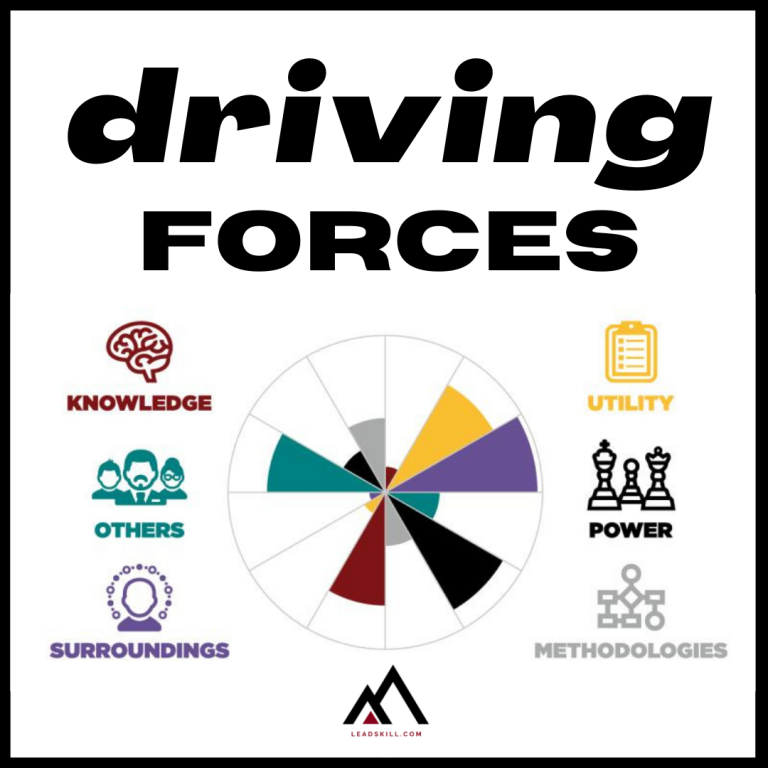
When you know your top motivators, you gain a greater self awareness. Have you ever reached a significant goal in life only to realize that it didn’t give you the full satisfaction you wanted or expected? Often we pursue goals because of cultural forces or the influence of other people. When you know your true motivators, you can pursue goals that you know are genuinely aligned with your inner values.
When you tune into someone else’s primary drives, you will have more influence with them as well as the ability to truly support their higher aspirations. Paying attention to the language of driving forces gives us more ability to show genuine empathy and understanding toward others. With greater insight and understanding we can help them develop and grow even further.
To get a copy of a free ebook on Driving Forces, give us a contact email and you’ll be able to download the ebook immediately.
Did you see our video on “What Drives You” and the 12 Driving Forces on Youtube? If not, check it out here.
What motivates you?
This is a very practical question.
The six keywords of motivation reveal the main categories of things we want to pursue: knowledge, utility, surroundings, others, power, methodologies.
These six keywords open doors into a hallway. The hallway forks and goes in two opposite directions.
This may seem contradictory, but like many of life’s paradoxes it shows us how things work in ways contrary to our expectations.
Knowledge
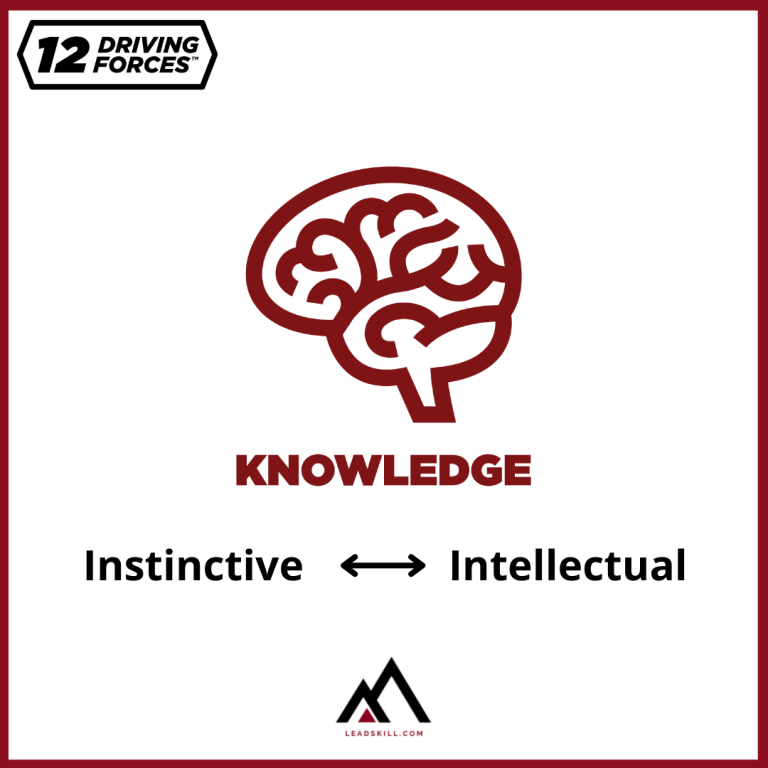
If you value learning, discovery, and the pursuit of understanding, acquiring knowledge likely motivates you.
The Theoretical motivator spectrum includes two different approaches to knowledge and learning.
Intellectual or Theoretical people are driven to constantly learn and discover new knowledge. They believe that those with the most facts or insights have the most interesting lives. Gaining knowledge motivates them both deeply and broadly.
Instinctive people want to use intuition, experience and just-in-time learning to guide their efforts. They aren’t looking for in-depth knowledge or getting lost on interesting side discoveries. Research to them sounds like a lot of boring work, and they would rather bring real-world know-how and experience to a task rather than elaborate theories or loads of extra knowledge.
Utility
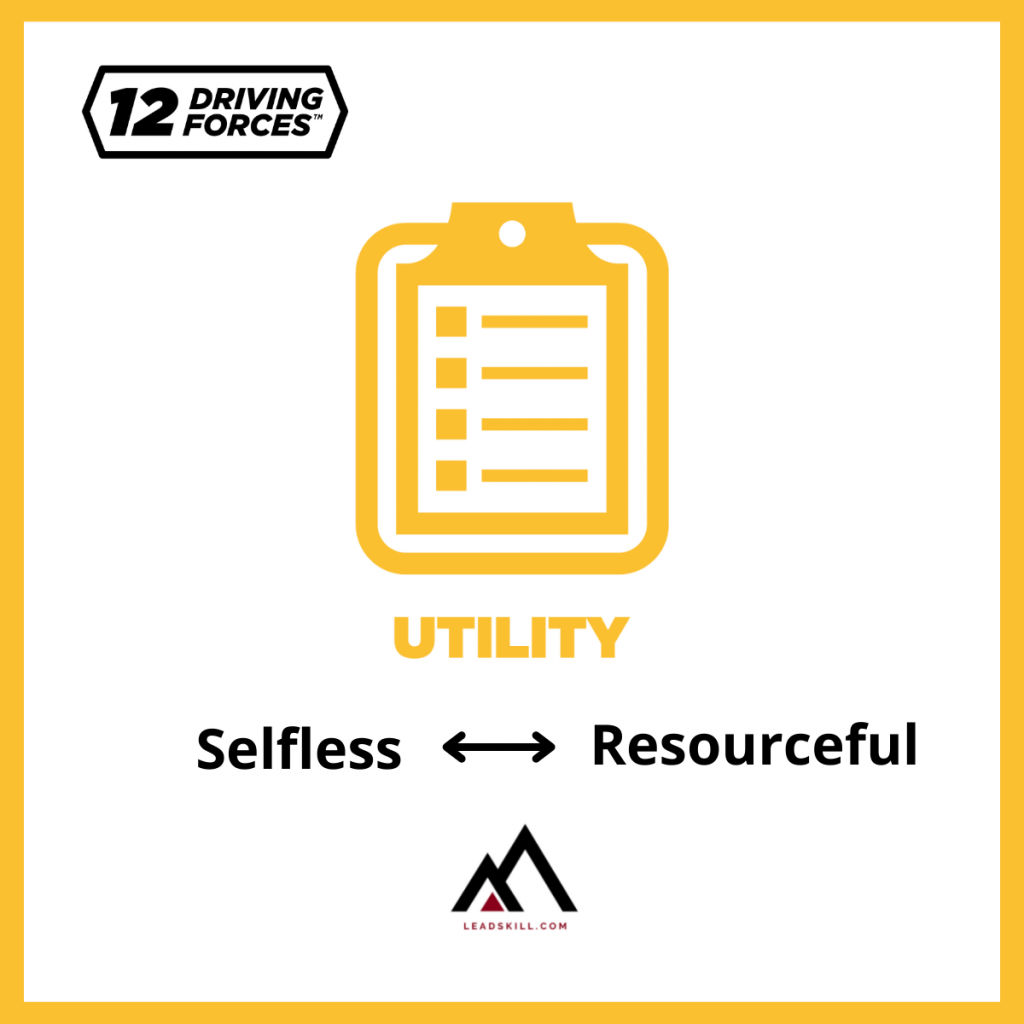
If you value practicality, usefulness and getting a good return on your investment, then you value utility. In contrast, some people see greater practicality in seeking the greater good rather than individual returns. The Utilitarian motivator spectrum includes two different approaches to resources and practicality.
Resourceful or Utilitarian people want to maximize personal return. They believe that putting something to practical use is what unlocks real value. Optimizing, capitalizing and reaping a return motivates them.
Selfless people want to accomplish and complete a task without focusing on the personal return. Completing the task is its own reward. Selfless people are not necessarily altruistic toward others, they just want to be frugal with time and efficient in getting the job done, not in maximizing their own return.
Surroundings
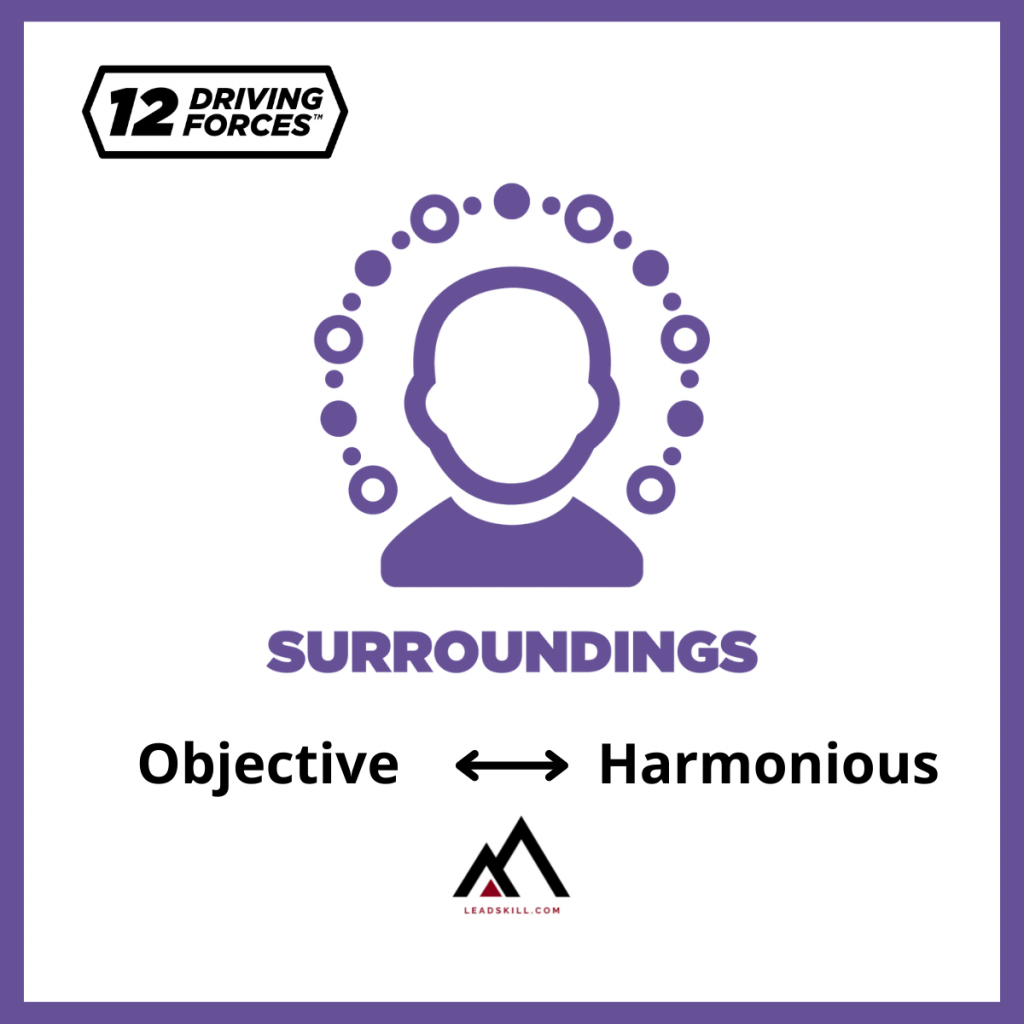
Do you find it hard to live or work in a place that isn’t beautiful and harmonious? Or do you find it easy to focus on everything but your surroundings as long as they are functional and working well? Both of these motivations are tied to surroundings, but they work in opposite ways. The Aesthetic motivator spectrum includes two different approaches to form and beauty in the environment around us.
Harmonious or Aesthetic people want to be in tune with their environment, experiencing it fully and preferring harmony and beauty first. They take in the big picture and tend to be more sensitive than others to what’s in their surroundings. Inspiring environments motivate them.
Objective people value functional spaces and can focus in on one thing and ignore what others might call clutter or a “busy” environment. Beautiful things are nice, but their main concern is what works and they look at things objectively more than subjectively.
Others
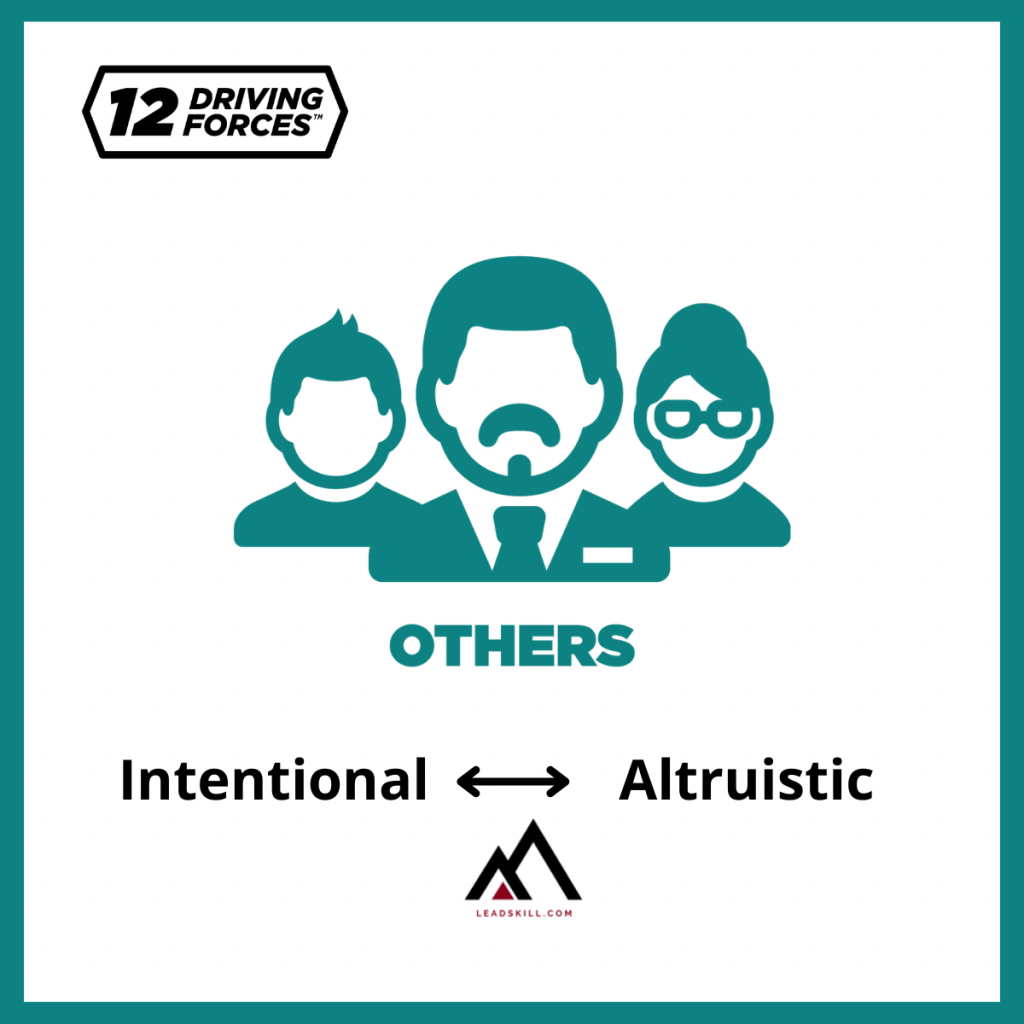
Are you passionate about giving, helping and being of service to others? Is that expressed in highly specific ways or is it something that drives you at all times in a wide variety of situations? The Social motivator spectrum includes two different approaches to helping others.
Altruistic or Social-minded people are drawn to help others whenever they see a need. They give generously of whatever they have and are ready to serve at a moment’s notice. Helping others motivates them as well as the belief that making the world a better and kinder place is worth the sacrifice.
Intentional people are all about helping for a specific purpose. Instead of helping all people at all times, they are selective and careful about helping people with a specific intent in mind. They believe all people should be accountable for whatever they’re given, so writing “blank checks” or giving without any conditions or accountability runs against their nature.
Power
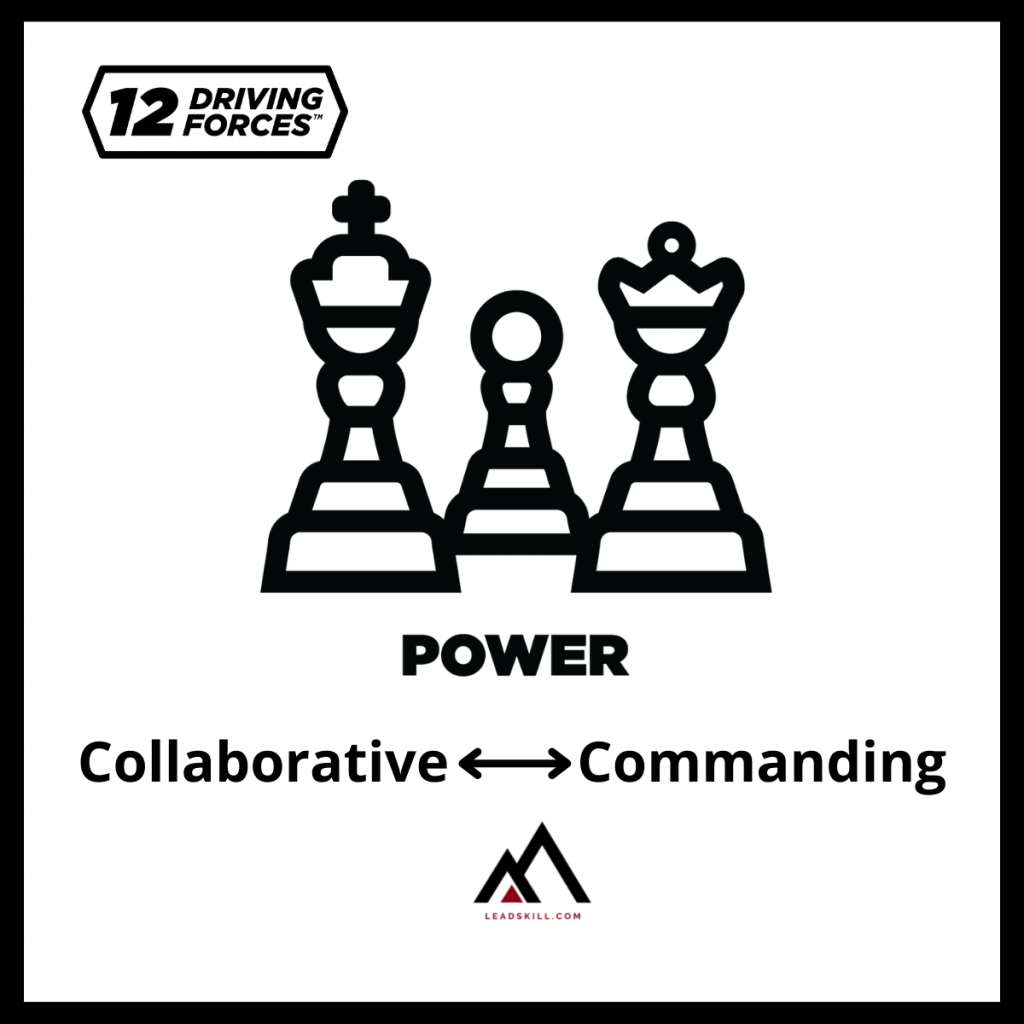
If you value status, recognition, being on top or in the lead, you may find power attractive. This is not a bad thing! On the other hand, the power of the team and supporting collective efforts while staying out of the spotlight motivates some people. The Individualistic motivator spectrum includes two different approaches to power and recognition.
Commanding or Individualistic people want to be in the lead position. They believe that recognition should go to those who contribute. Winning, recognition and status motivates them.
Collaborative people want to support and contribute rather than lead. They aren’t looking for recognition. Instead they are drawn to “quiet power” and like working closely with others on mutual goals. When praise is given, they prefer it in private and low-key ways instead of the embarrassment of big public shows.
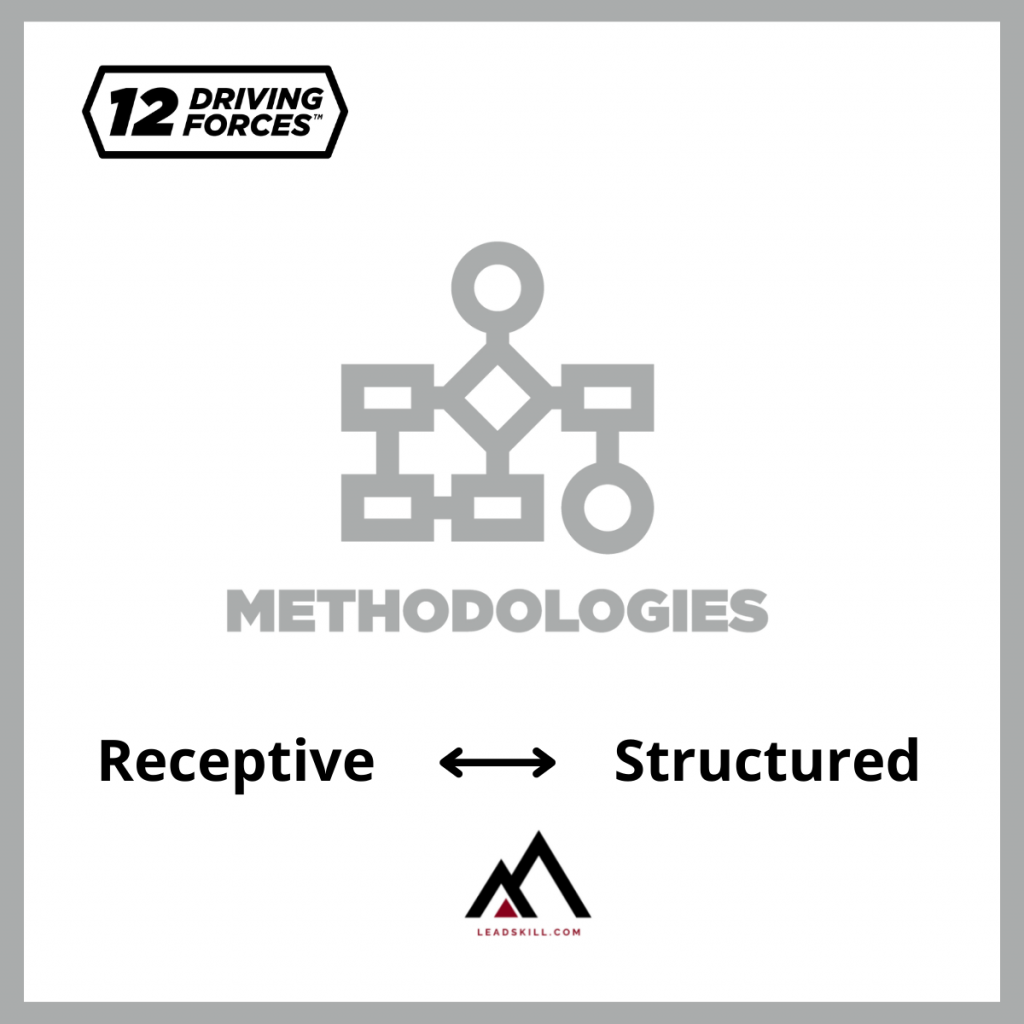
Methodologies
Are you passionate about your personal beliefs and values? Or perhaps you feel strongly about remaining open in a receptive mindset to all systems for living? The Traditional motivator spectrum includes two different approaches to honoring a system for living.
Structured or Traditional people want the system defined and clear. They believe that some methodologies are clearly better than others and they want this spelled out. Clarity and honoring the better method motivates them.
Receptive people are much more open to new ideas, opportunities and methods. They aren’t locked in on one system. Instead they maintain a receptive attitude to a wide variety of possible systems. Innovation and openness motivates them.
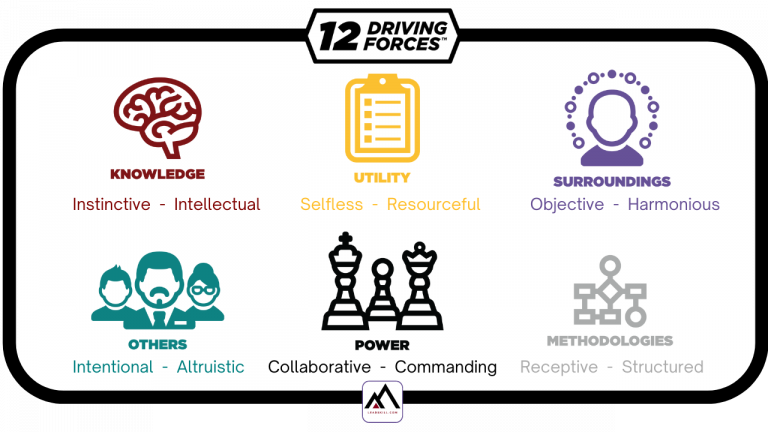
“What drives you?” is the question. The science of self that we call the 12 Driving Forces provides you key hints and insights to the answers.
If you are a leader of a team or organization and want to understand your own motivational patterns by getting a demonstration of this system including your own personal assessment, we can arrange that along with a short debrief with a coach. Leave a few details here and we’ll be in touch soon.
® 12 Driving Forces is a registered trademark of Target Training International, Ltd.
Leadskill is a Value Added Associate of TTI Success Insights

